Shen et al. show that pre-existing neural similarity in strangers predicts future friendship and changes in social distance over time in an emerging social network of MBA students.
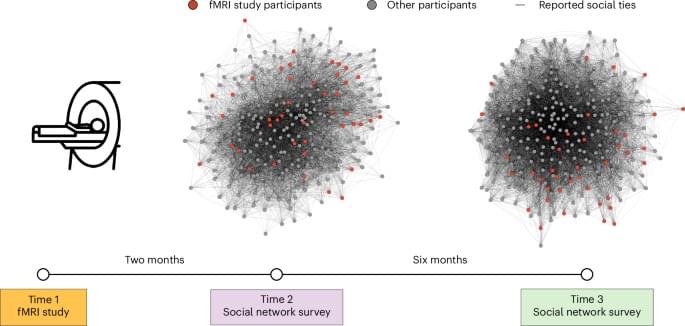

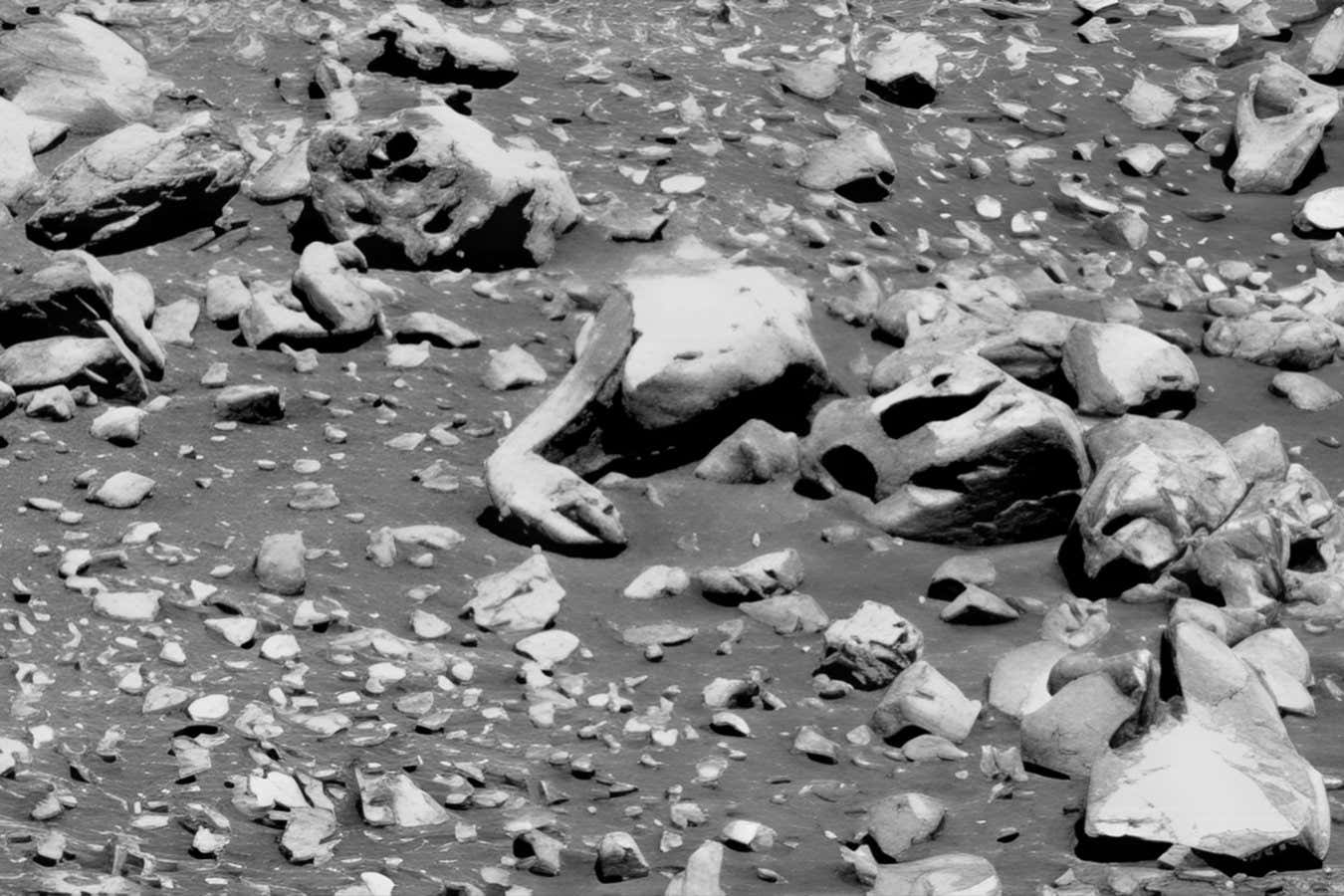
Brian Cory Dobbs’s documentary promotes the baseless idea that Mars was once inhabited by an advanced civilisation. But there’s some value in how it inadvertently documents a generation of otherwise-sensible scientists, says Simon Ings
By Simon Ings

Artificial intelligence offers the potential to improve people’s living standards. Such advances can be approximated by changes in GDP per capita over time. Using that common measure, AI could enhance longstanding productivity gains or, alternatively, drastically alter the economy in relatively short order.

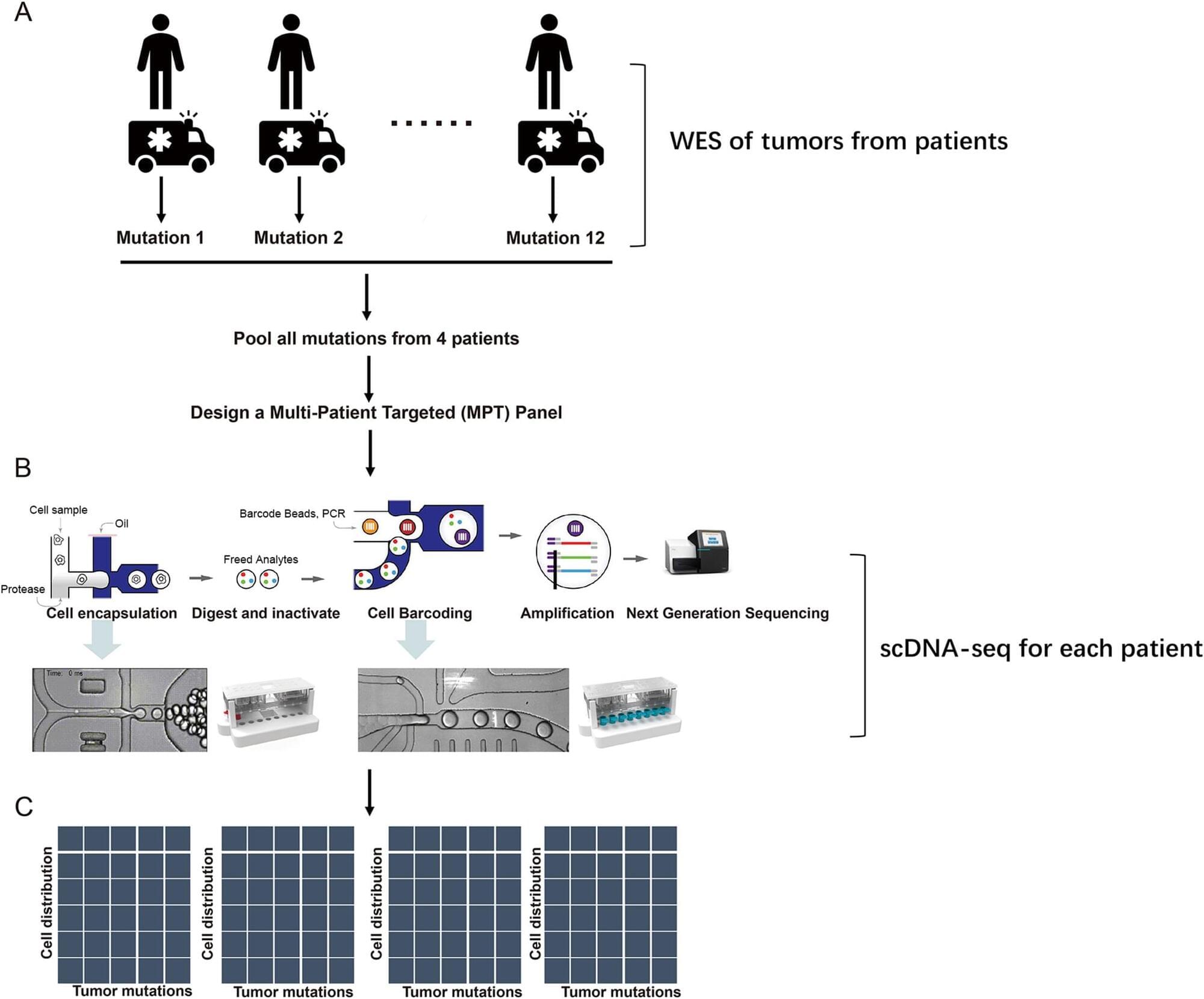
Cutaneous squamous cell carcinoma (CSCC) is a prevalent skin cancer with aggressive progression that poses significant challenges, especially in metastatic cases. Single-cell DNA sequencing (scDNA-seq) has become an advanced technology for elucidating tumor heterogeneity and clonal evolution. However, comprehensive scDNA-seq studies and tailored mutation panels for CSCC are lacking.
We analyzed the genomic landscape of Chinese CSCC patients via a Multi-Patient-Targeted (MPT) scDNA-seq approach. This method combined bulk exome sequencing with Tapestri scDNA-seq. Mutations identified through bulk sequencing were used to design a targeted panel for scDNA-seq. Comparative analysis was conducted to explore the associations between specific gene mutations and clinical characteristics such as tumor stage and patient sex. Clonal evolution analysis was performed to understand the evolutionary trajectories of the tumors.
Bulk sequencing revealed a diverse spectrum of somatic mutations in CSCC tumors, with missense mutations being predominant. The top tumor mutations, such as those in NOTCH1, TP53, NOTCH2, TTN, MUC16, RYR2, PRUNE2, DMD, HRAS, and CDKN2A, presented similar frequencies to those reported in studies in Korean and Caucasian populations. However, the mutation frequencies of HRAS, TTN, MUC16 and MUC4 were significantly different from the Korean and Caucasian populations. Comparative analysis revealed associations between specific gene mutations and clinical characteristics such as tumor stage and patient sex. Clonal evolution analysis via scDNA-seq revealed distinct evolutionary trajectories and their potential correlation with tumor development and patient prognosis. Furthermore, scDNA-seq identified two low-frequency mutation clones, NLRP5 and HMMR, which play important roles in the clonal evolution of CSCC.
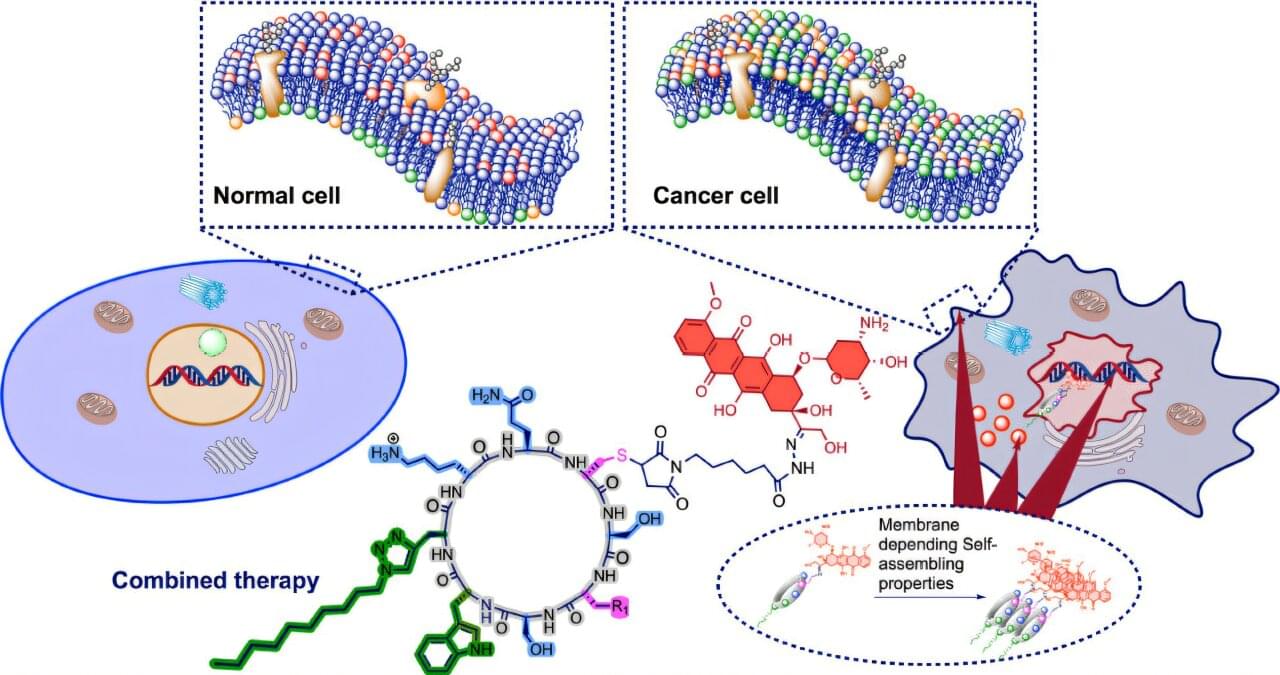
A research team at CiQUS (University of Santiago de Compostela, Spain) has unveiled an innovative molecular approach that enables anticancer drugs to reach the nucleus of tumor cells, where they can exert their therapeutic effect. The study focused on doxorubicin, a widely used chemotherapy agent. Prolonged exposure to this drug often leads to the emergence of resistant cells, a major clinical challenge that this strategy successfully overcomes while preserving the drug’s antitumor activity.
The approach builds on a simple but powerful concept: the ability of cyclic peptides —small amino acid rings— to stack and self-assemble into hollow cylindrical structures (nanotubes) on the surface of cancer cell membranes. The system, developed by the team led by Juan R. Granja, couples doxorubicin to these peptides and directs it to the cell nucleus through a delivery pathway that differs from the drug’s usual mechanism. This allows the drug to bypass the cellular resistance mechanisms that would normally deactivate it.
Compared with healthy cells, cancer cell membranes contain higher levels of negatively charged lipids. The cyclic peptides used in this study display a strong affinity for these anionic surfaces, facilitating their interaction with tumor cells. As a result, the peptide–drug conjugates enter resistant cells and travel towards the nucleus, where doxorubicin intercalates with DNA to trigger its cytotoxic effect.
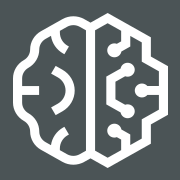
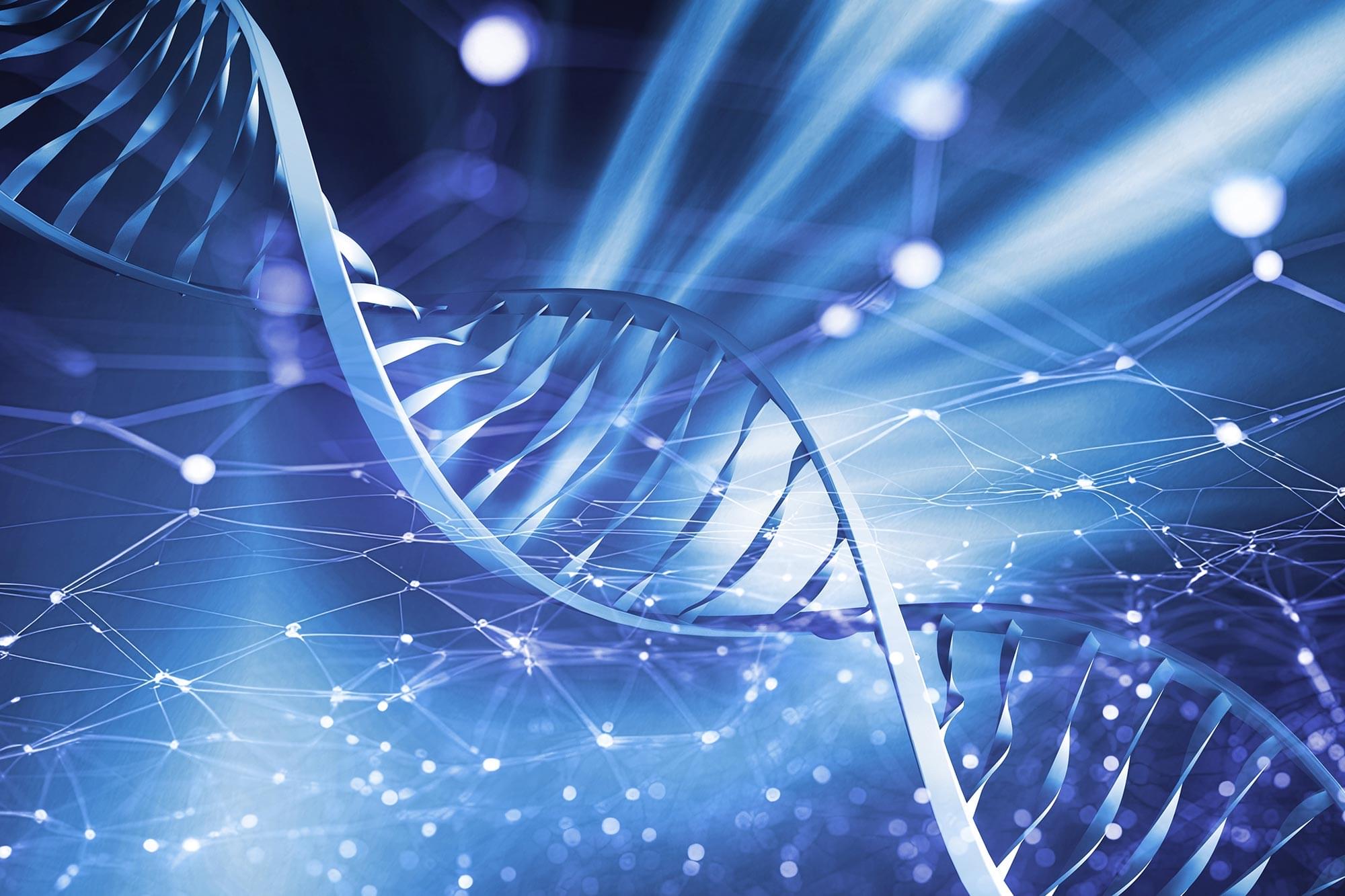
Samsung just shocked the entire AI world — a 7-million-parameter model called Tiny Recursive Model (TRM) just out-reasoned billion-parameter giants like Gemini and DeepSeek. Built by Samsung’s Montreal research lab, this microscopic AI loops over its own thoughts, rewrites its answers, and fixes mistakes before you even see them — creating reasoning depth without size. It’s 25,000 times smaller than Gemini 2.5 Pro, yet it beat it on real reasoning benchmarks like ARC-AGI.
Meanwhile, Microsoft built an AI brain for quantum chemistry, Anthropic made an AI that audits other AIs, Liquid AI proved on-device intelligence can actually work, and Meta reinvented multimodal search — all in one insane week.
📩 Brand Deals & Partnerships: [email protected].
✉ General Inquiries: [email protected].
🧠 What You’ll See:
• Samsung’s 7-million-parameter TRM model that crushed Gemini and DeepSeek.
• How recursive thinking lets TRM fix its own mistakes 16 times per answer.
• Microsoft’s new neural model that changes quantum chemistry forever.
• Anthropic’s Petri framework that makes AIs audit each other.
• Liquid AI’s mobile-ready MoE model that runs locally on your phone.
• Meta’s new MetaEmbed system that rewrites multimodal search.
🚨 Why It Matters:
AI progress is no longer about size — it’s about intelligence, efficiency, and control. The smallest model just proved it can outsmart the giants.
#ai #Gemini #DeepSeek
Go to https://PIAVPN.com/IsaacArthur to get 83% off from our sponsor Private Internet Access with 4 months free!
A Dyson Swarm isn’t just power—it’s prosperity. See how humanity could turn a star’s energy into a solar-scale economy of trillions.
Visit our Website: http://www.isaacarthur.net.
Join Nebula: https://go.nebula.tv/isaacarthur.
Support us on Patreon: / isaacarthur.
Support us on Subscribestar: https://www.subscribestar.com/isaac-a… Group: / 1,583,992,725,237,264 Reddit:
/ isaacarthur Twitter:
/ isaac_a_arthur on Twitter and RT our future content. SFIA Discord Server:
/ discord Credits: The Dyson Economy — Mega-Structures, Mega-Markets, and Mega-Wealth Produced, Narrated & Written: Isaac Arthur Editor: Jonathan Maltz Editor: Thomas Owens Graphics: Bryan Versteeg, Jeremy Jozwik, Ken York, Sergio Botero, Udo Schroeter Select imagery/video supplied by Getty Images Music Courtesy of Stellardrone & Epidemic Sound http://epidemicsound.com/creator Chapters 0:00 Intro 0:09 The Vision of the Space Elevator 2:46 The Rope That Reaches the Sky 9:08 Manufacturing the Megastructure 12:58 Tether Design and Variants 19:57 PIA 21:52 Defects and Composites: Strength in Layers 22:48 Power and Payload 25:20 Safety, Scaling, and the Road Ahead.
Facebook Group: / 1583992725237264
Reddit: / isaacarthur.
Twitter: / isaac_a_arthur on Twitter and RT our future content.
SFIA Discord Server: / discord.
Credits:
The Dyson Economy — Mega-Structures, Mega-Markets, and Mega-Wealth.
Produced, Narrated & Written: Isaac Arthur.
Editor: Jonathan Maltz.
Editor: Thomas Owens.
Graphics: Bryan Versteeg, Jeremy Jozwik, Ken York, Sergio Botero, Udo Schroeter.
Select imagery/video supplied by Getty Images.
Music Courtesy of Stellardrone & Epidemic Sound http://epidemicsound.com/creator.
Chapters.
0:00 Intro.
0:09 The Vision of the Space Elevator.
2:46 The Rope That Reaches the Sky.
9:08 Manufacturing the Megastructure.
12:58 Tether Design and Variants.
19:57 PIA
21:52 Defects and Composites: Strength in Layers.
22:48 Power and Payload.
25:20 Safety, Scaling, and the Road Ahead.